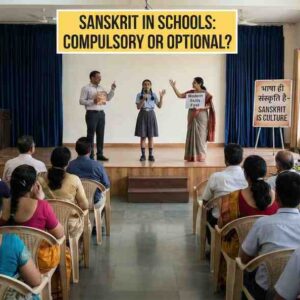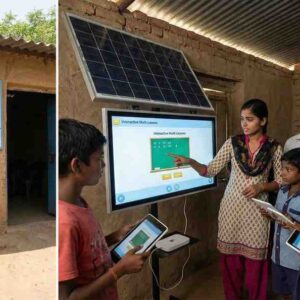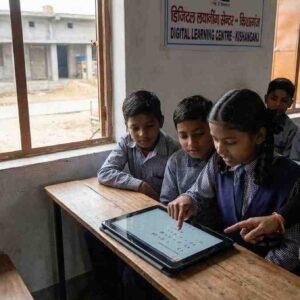Education and political engagement are deeply interconnected, with education often serving as a cornerstone for active and informed participation in democratic processes. In a country like India, where a significant portion of the population is young and gaining access to education, understanding this relationship is essential for building a vibrant and inclusive political culture.
Introduction
Political engagement—ranging from voting to activism and public discourse—is critical for the health of a democracy. Education plays a pivotal role in shaping how individuals perceive politics, understand their rights and responsibilities, and participate in governance. But how robust is this relationship, and what lessons can India draw to strengthen it?
How Education Shapes Political Engagement
Civic Awareness and Knowledge:Education provides individuals with the knowledge necessary to navigate political systems. Civics and social studies classes often introduce young people to the basics of governance, laws, and citizen responsibilities, fostering an understanding of their role in shaping society.
Critical Thinking and Debate:Education encourages critical thinking, enabling individuals to analyze political issues and policies rather than blindly accepting rhetoric. This skill is crucial for discerning voters and activists who can hold political leaders accountable.
Increased Voter Turnout:Studies globally and in India indicate that higher levels of education correlate with higher voter turnout. The 2019 Indian General Election saw an increase in voter turnout among educated young adults, reflecting the role of education in mobilizing political participation.
Awareness of Social Justice:Educated individuals are often more aware of issues related to inequality, human rights, and environmental sustainability. This awareness fosters activism and advocacy, as seen in movements like India’s youth-led climate protests.
Challenges in India
Uneven Access to Education:Despite progress, significant disparities in access to quality education persist, particularly in rural and economically weaker sections. These gaps limit political engagement among less educated populations, perpetuating inequalities in representation and participation.
Limited Civic Education:The Indian education system often emphasizes rote learning over practical knowledge, leaving students ill-equipped to engage with political processes. Civic education, where present, is frequently outdated or insufficiently prioritized.
Youth Disillusionment:Even among educated youth, political disillusionment remains a barrier. Factors such as corruption, lack of representation, and perceived inefficiency of governance systems often discourage active participation.
Strengthening the Link Between Education and Political Engagement
Revamping Civic Education:Integrating comprehensive, modern civic education into school curriculums can prepare students to participate actively in politics. This includes teaching practical skills like debating, analyzing policies, and understanding voting processes.
Promoting Experiential Learning:Programs like mock parliaments, internships with political offices, and community engagement projects can provide hands-on experience, fostering a deeper connection to political processes.
Encouraging Open Discussions:Schools and universities should encourage discussions on political and social issues, helping students develop informed opinions and an appreciation for diverse perspectives.
Conclusion
The relationship between education and political engagement is undeniable. In India, strengthening this link is essential to empower a new generation of politically aware and active citizens. By ensuring equitable access to quality education, modernizing civic education, and fostering environments for open dialogue, the nation can build a politically engaged citizenry that is capable of shaping a progressive, inclusive, and vibrant democracy. The future of India’s political landscape depends on how effectively it invests in educating and inspiring its youth to participate in governance and public life.










